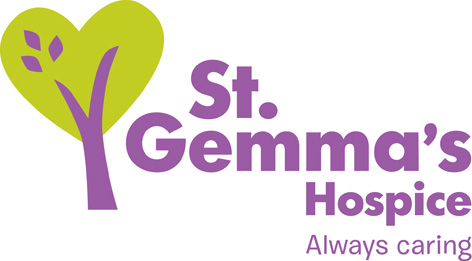We are a University Teaching Hospice
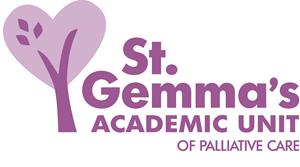


Professor Mike Bennett, the St Gemma’s Professor of Palliative Medicine explains: “This is a really important milestone for St Gemma’s. We have a long standing relationship with the University of Leeds both in terms of our research work and quality teaching. This national recognition reinforces St Gemma’s position on the international palliative care map and will act as the UK benchmark for integrated clinical and academic palliative care. We’ve recently achieved an Outstanding CQC status commending our clinical care. University Teaching Hospice status now formally acknowledges the work of our Academic Unit of Palliative Care.”
How did we qualify for University Teaching Hospice status?
St Gemma’s and the University of Leeds (UoL) appointed Professor Mike Bennett as the first St Gemma’s Professor of Palliative Medicine in 2011, who then established the Academic Unit of Palliative Care in 2012. The Academic Unit is physically located on two sites: Leeds Institute of Health Sciences (UoL) and at St Gemma’s.
Many hospices across the UK work closely with universities. In order to be officially awarded University Teaching Hospice status, we were required to submit a detailed application. Key factors in our success were research, teaching, and clinical impact.
RESEARCH: Joint research strategy agreed with UoL, Professor Mike Bennett working at the Hospice and the University, substantial portfolio of externally awarded research income held at University of Leeds, two full time NIHR research nurses (Kath Black and Angela Wary) recruiting an average of 170 patients to 6 national studies every year; core research centre for the European Association for Palliative Care (EAPC) research network; awarded 4 NIHR Academic Clinical Fellows since 2013; publication of over 90 peer reviewed research papers, winner of BMA Book of the Year 2015; supervision of 10 medical student research projects each year; established undergraduate research prize in palliative medicine.
TEACHING: Dedicated teaching staff with honorary university roles; Trish Stockton (Lecturer and Head of Learning and Teaching), Dr Jason Ward (Senior Clinical Lecturer, Head of Year 4 of the MB ChB curriculum), Jane Chatterjee (Lecturer); substantial hospice based teaching to 30 nursing students and 260 medical students (92 on supervised clinical placements); postgraduate training of doctors and nurses in conjunction with HEE Yorkshire Deanery, substantial portfolio of taught courses including Advanced Communication Skills, European Certificate in Essential Palliative Care, Masters level symptom control modules.
CLINICAL IMPACT: Dedicated Nurse Consultant (Catherine Malia) translating research and teaching into better patient care specifically recognised by ‘Outstanding’ CQC inspection award; impact on national and international standards on cancer pain through leadership of NICE guidance for opioids, CQC inspection framework, international classification of cancer pain (ICD-11), European guidelines on cancer pain, authorship of Cochrane reviews of evidence.
Q: What is the significance of this development?
A: We have a long-standing relationship with the University of Leeds and our new status as University Teaching Hospice formally acknowledges the quality of research and teaching our Academic Unit of Palliative Care carries out. It reinforces St Gemma’s position at the forefront of palliative care internationally and will act as the UK benchmark for integrated clinical and academic palliative care.
Q: What does this new status mean for patient care?
A: All of our research, teaching and training is ultimately aimed at improving patient care and means the people we look after will be treated in the best way possible.
Whether we are researching pain relief, training students or learning more about palliative care developments across the world, as patients’ needs change over time, we will always be in a position to adapt because of the new research which will be carried out. Our ongoing research ensures St Gemma’s staff and volunteers have the most up-to-date education in standards of care, based on first-hand evidence.
Catherine Malia, Nurse Consultant at St Gemma’s Hospice explains: “A key part of my role at the Hospice is implementing research evidence into practice. We are always learning from our research findings and myself and the wider clinical team work hard to integrate any positive outcomes to directly improve the patient’s care and experience.
For example, research undertaken by the St Gemma’s Academic Unit of Palliative Care demonstrated that provision of information to patients about pain and effective use of painkillers leads to reduction in patients’ pain levels. As a result, we have developed patient information resources that educate patients about their pain, how to take pain killers safely and effectively, and dispel some of the common fears associated with strong pain killers. We routinely provide these materials to patients when we are advising them to use pain-killing drugs.”
Q: Does this mean the University funds St Gemma’s work or vice versa?
A: No. The relationship between the University and the Hospice is not financially based, and will not affect the Hospice’s need to raise funds from generous public donations to support its ongoing work.
Q: How does the teaching benefit palliative care professionals outside of the Hospice?
A: We offer a comprehensive training programme to all health care professionals in palliative/ end of life care with the aim of improving the way care is delivered.
This includes being a host site for the European Certificate in Essential Palliative Care, delivering the regional Advanced Communication Skills training programme, masterclasses in symptom management, ethics and how to manage dementia the end of life. A key area which has developed over the years is supporting students from all disciplines on placement at the hospice and teaching on their training programmes to ensure that end of life care is an integral part of their practice.
Trish Stockton, Head of Learning and Teaching at the Academic Unit of Palliative Care says: “We have had strong working relationship with the University of Leeds for many years and value their support and collaboration in the training that we provide.”

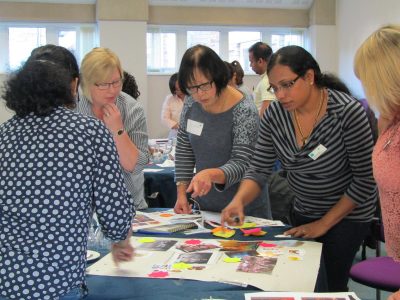


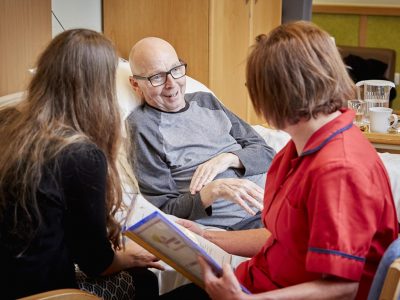
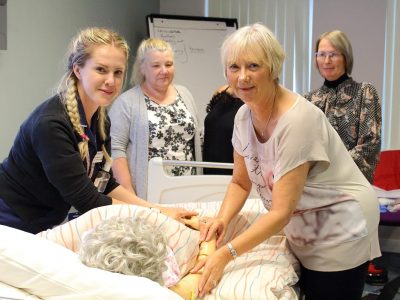
Copyright ©2023 St Gemma's Hospice
Our Fundraising Promise | Privacy | Accessibility | Cookies

